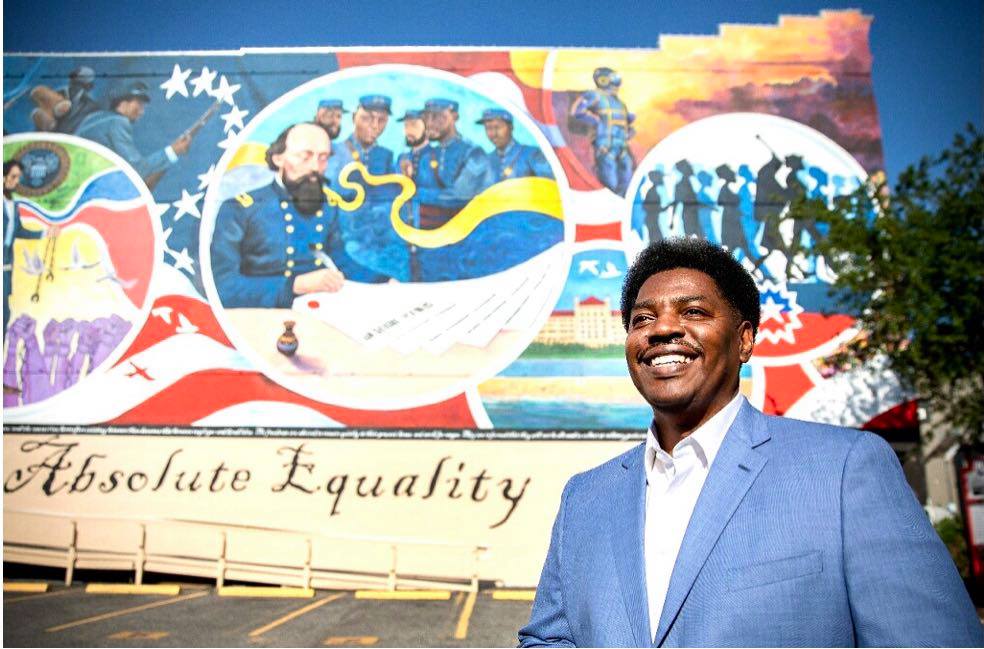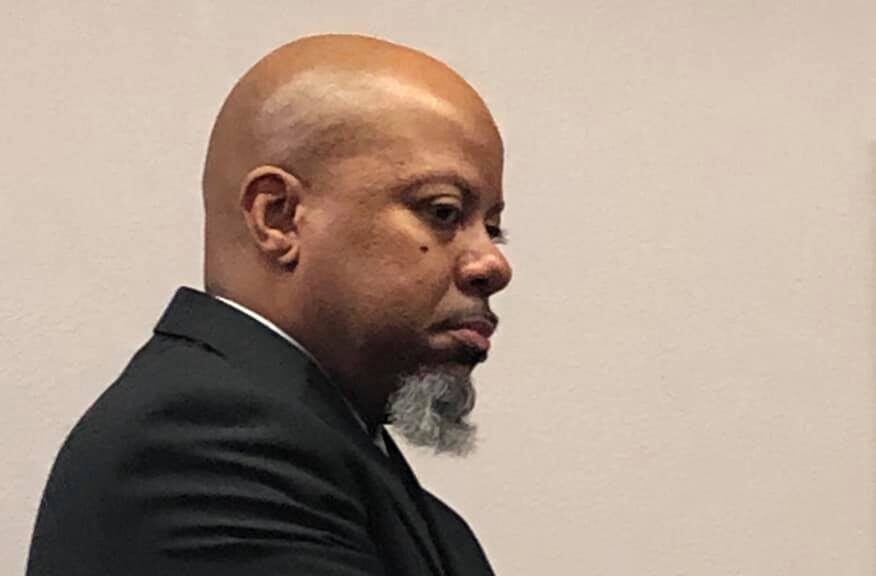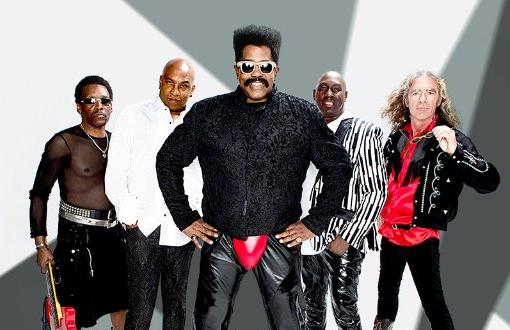
By Rebecca Marks Jimerson
Galveston is a city rich in history, with many monumental events and people connected to the island. The Great Storm of 1900 and the story of Galveston’s most famous native son Jack Johnson are two well-known examples, but another date that is important to all American history also has direct ties to Galveston—June 19, 1865, commonly known as Juneteenth.
I talk to Sam Collins at the Juneteenth Art Gallery located on the historical Strand. Sam was multitasking; two magazine interviews, while giving directives on the placement of art by T Ellis, renown African American Artist.
Sam is a Galveston “BOI” born on the Island native, deeply rooted in the community, he knows the rich African American cultural heritage, and is on a mission to not let it be forgotten. He is an astute business broker, who resides with his family at “Stringfellow Orchards” a historical Victorian Estate on the outskirts of Galveston. He serves on boards for the National Trust for Historic Preservation Texas Historical Commission State Board of Review Galveston Historical Foundation and the Ruby Bridges Foundation national board. Collins also helps in preservation projects for the 1867 Settlement Community in West Texas City an area settled by former slaves.
Rebecca: Sam, you are called the Historian of Juneteenth, and a historical preservationist, is this why Galveston’s African American history is so important?
Sam: Galveston was the last major port west of New Orleans to let enslaved people know they were free. The holiday of “Juneteenth” celebrates the emancipation from slavery and originated in Galveston. I want people to realize that African American history is American history, and the Juneteenth story is one of those historical events that only recently has been seen as significant to America’s freedom story.
Rebecca: You have been guiding the Juneteenth Galveston celebrations for some time now, why is this year’s celebration different?
Sam: As part of the evolution of these celebrations, and with the support of a 25-member group of Galveston community leaders, activists, and philanthropist Sheridan Lorenz, the Juneteenth Legacy Project was formed. I serve as the President and the Nia Cultural Center is the Juneteenth Legacy Project’s fiscal sponsor accepting tax-deductible donations on behalf of the organization.
Rebecca: Tell us about the Juneteenth Legacy Art Project?
Sam: The first Juneteenth Legacy Project is the public art mural on wall of the Old Galveston Square building located on Strand. This massive art installation covers almost 5,000 square feet. Houston artist Reginald C. Adams, who also created a George Floyd mural in Houston, led a six-person team for the mural’s painting. The mural features images of President Abraham Lincoln; Harriet Tubman and the Underground Railroad; and Estevanico, considered the first African to traverse Texas. But the work’s central theme highlights the U.S. Colored Troops, whose overwhelming presence on that historic day has been overlooked.
Rebecca: What is the Mural titled:
Sam: The art mural is titled, “Absolute Equality” taken from Major General Gordon Granger’s General Order No. 3 issued on June 19, 1865. Stressing that enslaved people’s freedom “involves an absolute equality of personal rights and rights of property.”
Rebecca: Why is it important to you that we continue recognizing Juneteenth each year?
Sam: We must never forget what Juneteenth meant to the former enslaved people. We must also study history and learn from the mistakes of the past. Enslaving people did not start in America, and slavery is not unique to America, nor has it ended worldwide. Some people still suffer today in various forms of bondage; Juneteenth is a celebration that may give those people hope that they too may one day be free.
Note: The Absolute Equality mural has made a national list of 21 sites to visit to learn about African American history. Visit Galveston and celebrate this achievement and this pivotal piece of American history. While you are on the Strand stop by and tour the Juneteenth Art Gallery and chat with Sam Collins, even if he is multitasking! Sam, is on a mission for Juneteenth, Galveston, Texas to be recognized for celebrating freedom, opportunity, and absolute equality for all.
For more information on the project and how to contribute, visit www.JuneteenthLegacyProject.com.










